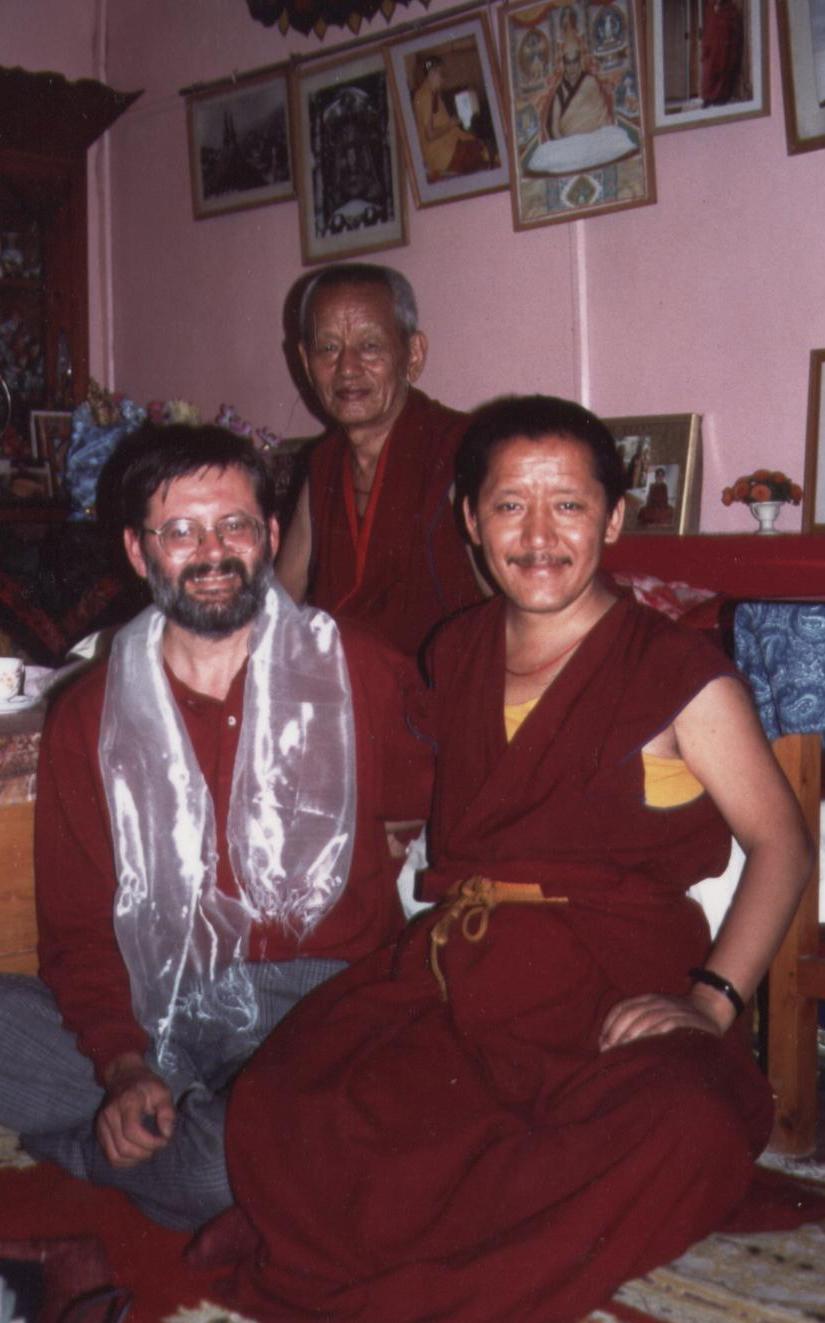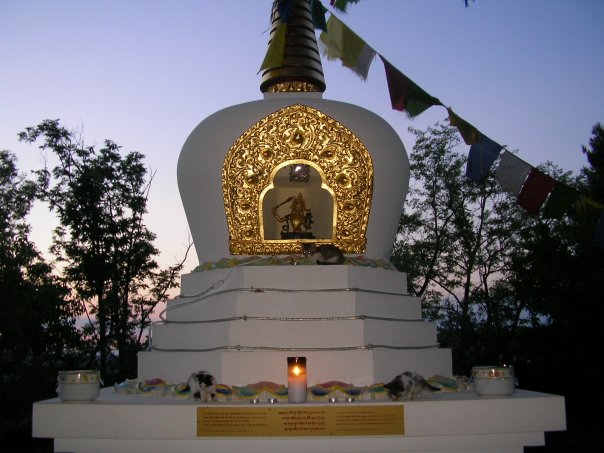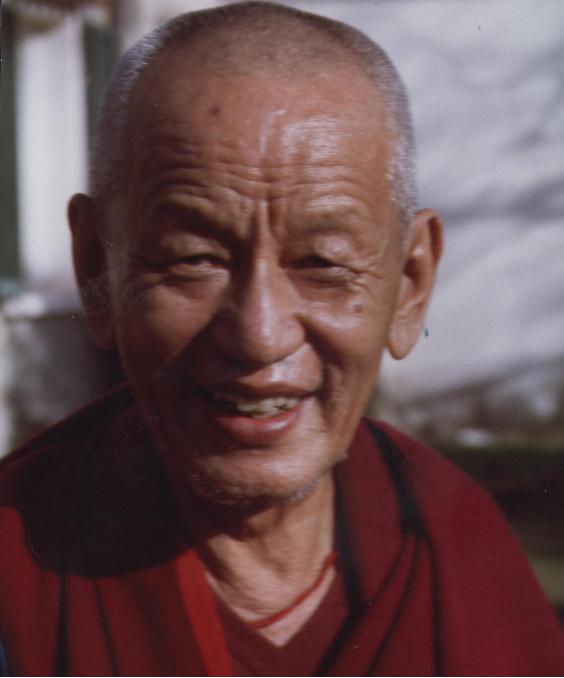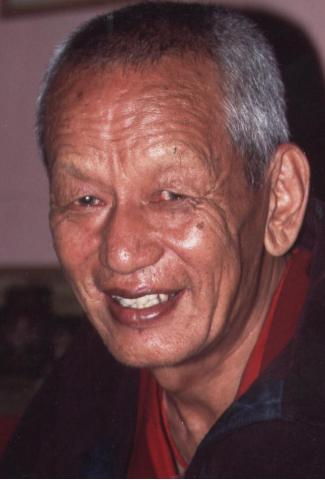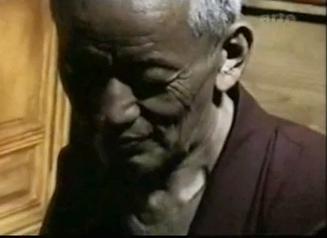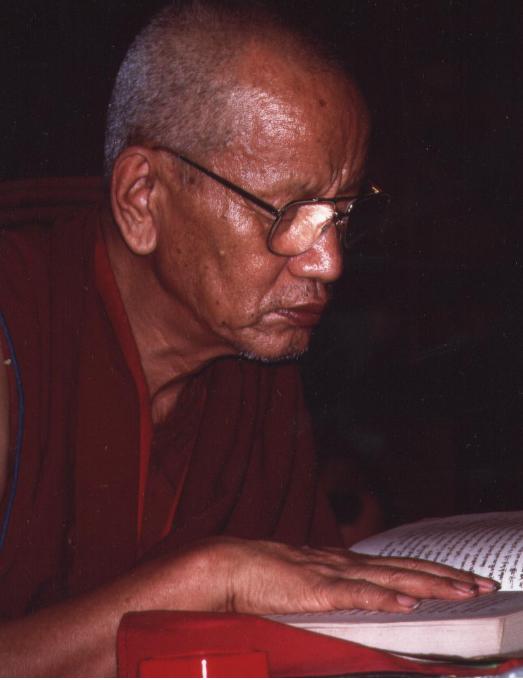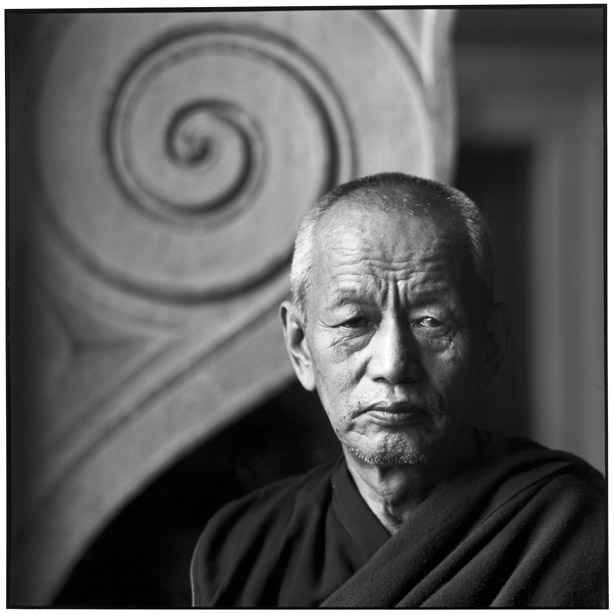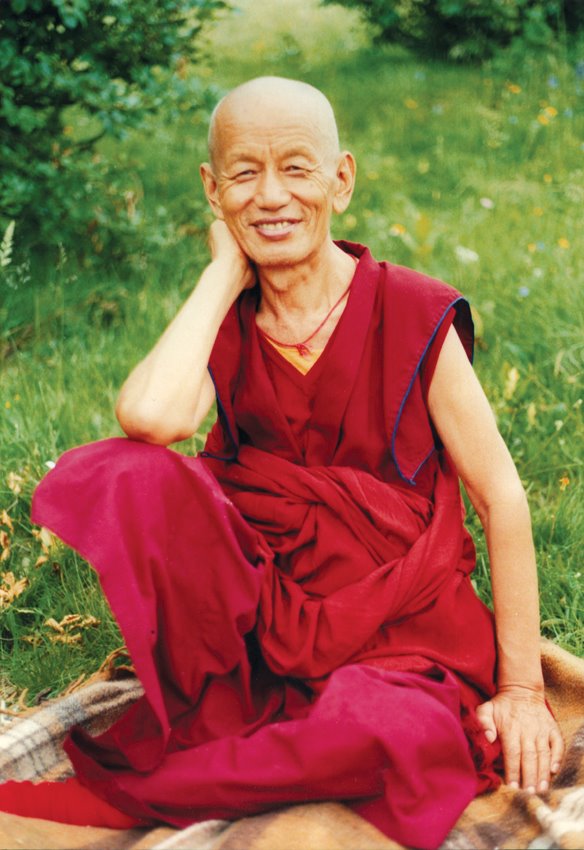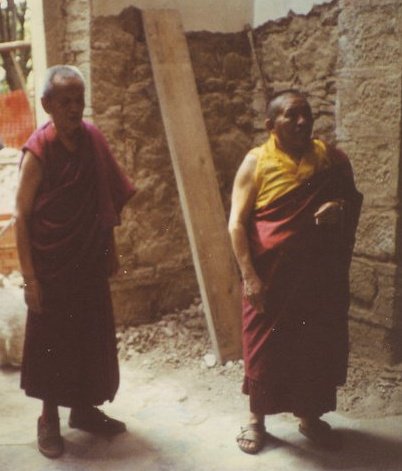
Ven Ghesce Yesce Tobten and Ven. Ghesce Ciampa Gyatzo
The Teachings of Ven.Geshe YesheTobden during a seminar in Turin, November 1-3, 1985. by Mariangiola Fracasso

Ven Ghesce Yesce Tobten and Ven. Ghesce Ciampa Gyatzo
REALITY: SUFFERING AND ITS CAUSES
Ven. Geshe Yeshe Tobden.
We will talk about the practice of Dharma. If we analyze the reality of our condition, we see that we want happiness and of course we do not want misery and suffering. We can have the happiness that comes from material things, but the eternal happiness can not be obtained through them.
You can say the same thing about suffering and misery: we can partially get rid of them through material objects, but not completely. Continue reading
You can say the same thing about suffering and misery: we can partially get rid of them through material objects, but not completely. Continue reading
